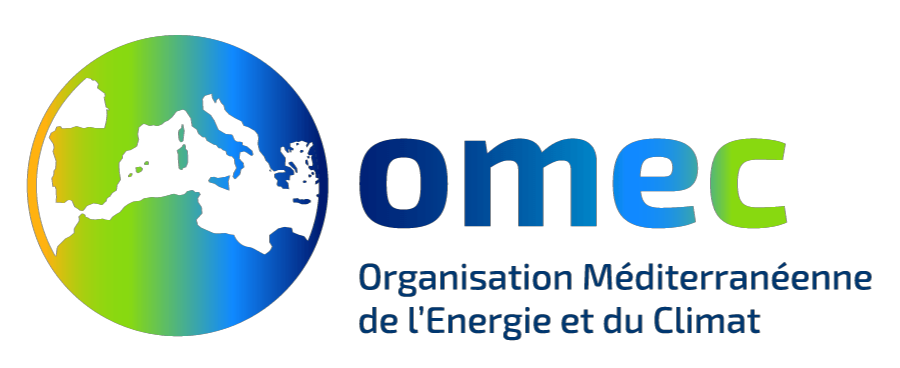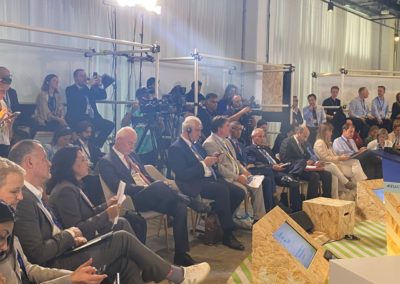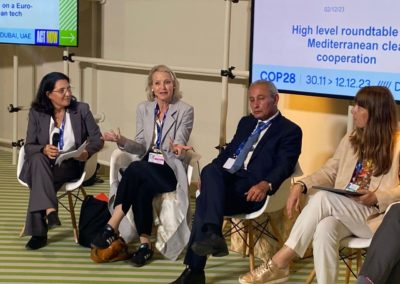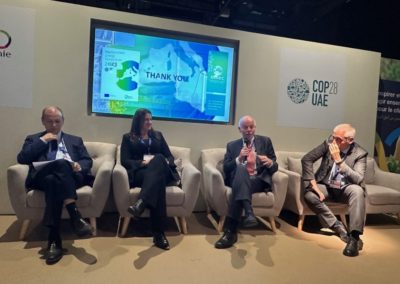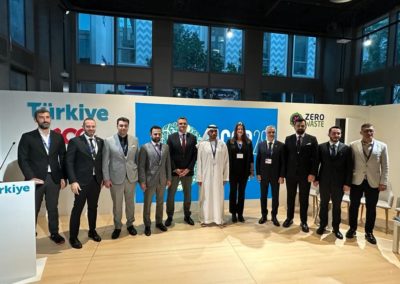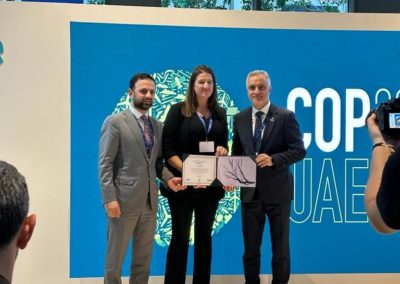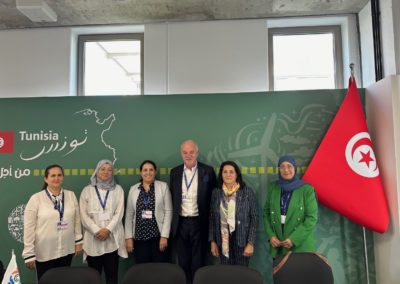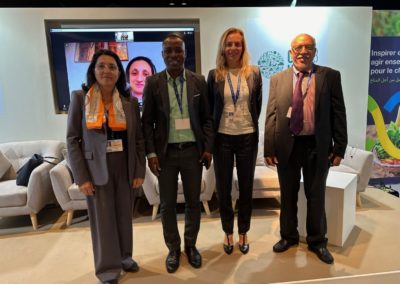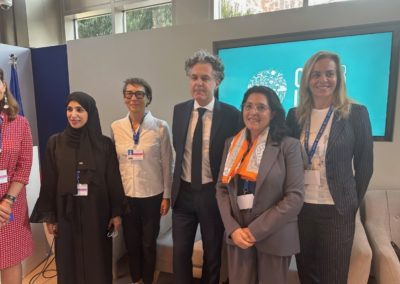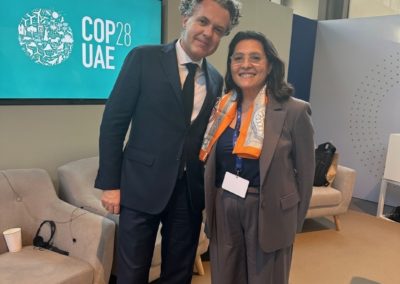
OMEC @ COP28
OMEC actively contributed to the 28th United Nations Climate Change Conference (COP28), which took place under the Presidency of the United Arab Emirates from 30 November to 12 December 2023 in Dubai.
As the Mediterranean authority on energy and climate, with members from 16 countries around the basin, OMEC delivered expert analysis, data, policy advice and proposed solutions to bolster efforts to tackle climate change in the region and accelerate its decarbonisation as well as progress towards a more secure, sustainable and equitable energy future.
To keep the goal of limiting global warming to 1.5 °C alive, OMEC shared its insights and expertise through a wide range of events at COP 28. OMEC’s participation at COP 28 included:
– The organization of 3 side-events:
1. Technologies and regional Mediterranean cooperation to foster carbon neutrality to 2050 (IFDD pavilion) https://epavillon.francophonie.org/programmation/387
2. The fight against marine plastic waste, zero waste objectives. Act from global to local (ADEME – French Pavilion) https://www.youtube.com/@developpementdurable/streams
3. The fight against plastic waste in the marine environment. Solutions and mobilization of the Mediterranean and French-speaking network (IFDD pavilion) https://epavillon.francophonie.org/programmation/382
– Key-note speaker or moderator – 5 side-events:
o Moderation of the High-level roundtable on a Euro-Mediterranean clean tech cooperation (EU – DG ENER & DG CLIMA – EU Pavilion)
o Two side events on energy and circular economy, Optimistic Tunisia 3 (Tunisian Talents United, Tunisian Pavilion)
o Energy Transition in the Mediterranean and Africa: Needs and Perspectives (EMEA – Mediterranean Coalition Office) https://www.youtube.com/watch?v=GK4hOZzny08
o How to understand and adopt climate change from the perspective of MUSIAD members, (MUSIAD – Turkish Pavilion)
– BtoB meeting with CITET (Centre international des technologies de l’environnement de Tunis, Tunisia)
OMEC data, analysis and solutions provide support and guidance for companies and countries on their energy transition pathways by:
o Helping energy and climate actors operating in the region understand the Mediterranean state-of-play, as well as opportunities and challenges in the energy space, using its statistics and special focus analysis reports (reports on offshore wind, electric mobility, energy storage, plastics, nuclear, South Mediterranean gas in European gas supply security and gas trade, among the most recent).
o Outlining sustainable energy transition pathways in its flagship publication Mediterranean Energy Perspectives 2023, which includes the updated Net Zero Emissions by 2050 Scenario,
o Providing expertise on technologies and materials essential to clean energy transitions, including hydrogen.
Through its Mediterranean Energy Perspectives 2023, the recently updated Net Zero Scenario and Reference Scenario to 2050, OMEC has detailed what is needed for governments, companies, investors and Mediterranean citizens to decarbonise their energy sector and put emissions on a path in line with a temperature rise below 1.5 degrees Celsius above pre-industrial levels.
In the Mediterranean, under the Net-Zero Carbon Scenario – and in line with the Global Pledge put forward by the European Union:
1. Mediterranean renewable energy capacity to triple by 2030;
2. The Mediterranean rate of global energy intensity improvements to double by 2030;
3. Fossil fuels use to decline substantially from 75% currently to under 25% in 2050 in the region;
4. Scaled-up technologies and transmission & distribution networks are crucial;
5. The role of Mediterranean cooperation is critical to ensure a harmonious, fair sustainable transition.
To enable these changes, OMEC models show that clean energy investment needs to reach 250 billion euros a year by the early 2030s. Total investments towards building a clean energy economy to reach net zero emissions by mid-century would require a total 7 trillion euros to 2050.
